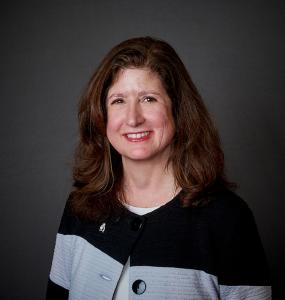The Medical Affairs Professional Society announces Robin Winter-Sperry, MD, as new President for the Americas Region.
Since joining MAPS in 2018, Dr. Winter-Sperry has demonstrated remarkable dedication and leadership in the organization.
Since joining MAPS in 2018, Dr. Winter-Sperry has demonstrated remarkable dedication and leadership in the organization. She served as the Chair of the Membership Committee from 2021 to 2024, where she significantly improved member engagement. Additionally, Dr. Winter-Sperry volunteered on the Mentorship Committee and participated in the Mentorship Program. She has also been a respected member of the MAPS Board of Directors since 2018, where her extensive experience and insights have greatly contributed to MAPS' impressive growth.
“The healthcare landscape is rapidly changing, and Medical Affairs serves as a crucial connection between scientific discovery and patient care,” says Dr. Winter-Sperry. “By promoting innovations, embracing collaboration, and striving for excellence, we can elevate the Medical Affairs profession while transforming the patient journey. Our ultimate goal is to shape a future where medical advancements lead to meaningful health outcomes, and I’m honored to be leading the journey at MAPS."
Robin Winter-Sperry, MD, has extensive experience in healthcare, particularly in the biopharmaceutical industry. She is the President of Scientific Resilience, a consulting firm focused on Global Medical Affairs strategy and innovation. Previously, she led Field-Based Medical Excellence International/Oncology at Pfizer and was the Head of Global Field-Based Medical at Ipsen. At Sanofi Genzyme, she established standards for Field-Based Medical Excellence and served as Vice President of Tactics & Strategy for Multiple Sclerosis. She also founded Scientific Advantage, a Medical Affairs consulting firm.
Robin began her career at Schering-Plough (Merck) in Dermatology and worked at Sandoz/Novartis, where she launched Novartis' first Medical Science Liaison department. She has been instrumental in promoting the roles of MSLs and Field Medical teams in the biopharmaceutical industry.
"Since her arrival at MAPS, Robin has been a dynamic catalyst for our incredible growth," declares Travis Hege, the CEO of MAPS. "As the Medical Affairs community undergoes a transformative evolution and broadens its reach throughout the Americas, Robin stands poised to elevate MAPS to extraordinary new heights."
As President of the Americas Region, Dr. Winter-Sperry's position is essential in advancing the organization’s mission throughout North, Central, and South America. This leadership role entails strategic oversight, community engagement, and the promotion of professional development among Medical Affairs professionals. Additionally, she is responsible for the development and coordination of regional chapters across the Americas, supporting chapter leaders, fostering local engagement, and ensuring alignment with MAPS’ overarching goals.
The President of the Americas Region is a prestigious role with a two-year term that commenced on April 1, 2025, offering an invaluable opportunity to lead and make a significant impact in the field of Medical Affairs.
About the Medical Affairs Professional Society (MAPS)
As the leading resource and community for Medical Affairs professionals, MAPS offers high-quality education, extensive networking opportunities, and essential industry insights to advance the Medical Affairs field. MAPS connects professionals from pharmaceuticals, biotech, MedTech, and supporting agencies with innovative research, best practices, and valuable career development opportunities. Through dynamic, expert-led content, impactful industry events, and strategic collaborations, we empower Medical Affairs teams to excel in scientific leadership and significantly improve patient outcomes. Learn more at MedicalAffairs.org.
Craig Ruvere
Medical Affairs Professional Society
cruvere|medicalaffairs.org| |cruvere|medicalaffairs.org
Visit us on social media:
LinkedIn
Legal Disclaimer:
EIN Presswire provides this news content "as is" without warranty of any kind. We do not accept any responsibility or liability for the accuracy, content, images, videos, licenses, completeness, legality, or reliability of the information contained in this article. If you have any complaints or copyright issues related to this article, kindly contact the author above.
Unicorn Jewelry Announces SEIKO Partnership to Expand Luxury Watch Offerings in San Diego
Cladding Market to Grow from $248.3 Billion in 2023 to $485.5 Billion by 2032 at a CAGR of 7.4%
AccessAbilities Expo launches 'Determination Without Limits'
Więcej ważnych informacji
 Jedynka Newserii
Jedynka Newserii

 Jedynka Newserii
Jedynka Newserii

Farmacja

Nowy pakiet farmaceutyczny ma wyrównać szanse pacjentów w całej Unii. W Polsce na niektóre leki czeka się ponad dwa lata dłużej niż w Niemczech
Jeszcze pod przewodnictwem Polski Rada UE uzgodniła stanowisko w sprawie pakietu farmaceutycznego – największej reformy prawa lekowego od 20 lat. Ma on skrócić różnice w dostępie do terapii między krajami członkowskimi, które dziś sięgają nawet dwóch–trzech lat. W Unii Europejskiej wciąż brakuje terapii na ponad 6 tys. chorób rzadkich, a niedobory obejmują również leki ratujące życie. Nowe przepisy mają zapewnić szybszy dostęp do leków, wzmocnić konkurencyjność branży oraz zabezpieczyć dostawy.
Handel
Wzrost wydobycia ropy naftowej nie wpłynie na spadek cen surowca. Kierowcy jesienią zapłacą więcej za olej napędowy

Sierpień jest trzecim z rzędu miesiącem, gdy osiem krajów OPEC+ zwiększa podaż ropy naftowej na globalnym rynku; we wrześniu nastąpi kolejna zwyżka. Kraje OPEC, zwłaszcza Arabia Saudyjska, chcą w ten sposób odzyskać udziały w rynku utracone na skutek zmniejszenia wydobycia od 2022 roku, głównie na rzecz amerykańskich producentów. Nie należy się jednak spodziewać spadku cen ropy, gdyż popyt powinien być wysoki, a pod znakiem zapytania stoi dostępność ropy z Rosji. Nie zmienia to faktu, że jesienią ceny paliw na stacjach zazwyczaj rosną, a w największym stopniu podwyżki dotyczyć będą diesla.
Nauka
Szacowanie rzeczywistej liczby użytkowników miast dużym wyzwaniem. Statystycy wykorzystują dane z nowoczesnych źródeł

Różnica między liczbą rezydentów a rzeczywistą liczbą osób codziennie przebywających w Warszawie może sięgać nawet niemal pół miliona. Rozbieżności są dostrzegalne przede wszystkim w dużych miastach i ich obszarach funkcjonalnych. Precyzyjne dane populacyjne są tymczasem niezbędne w kształtowaniu usług społecznych i zdrowotnych, edukacyjnych, opiekuńczych, a także w planowaniu inwestycji infrastrukturalnych. W statystyce coraz częściej dane z oficjalnych źródeł, takich jak Zakład Ubezpieczeń Społecznych, są uzupełniane o te pochodzące od operatorów sieci komórkowych czy kart płatniczych.
Partner serwisu
Szkolenia

Akademia Newserii
Akademia Newserii to projekt, w ramach którego najlepsi polscy dziennikarze biznesowi, giełdowi oraz lifestylowi, a także szkoleniowcy z wieloletnim doświadczeniem dzielą się swoją wiedzą nt. pracy z mediami.










.gif)

 |
| |
| |
|